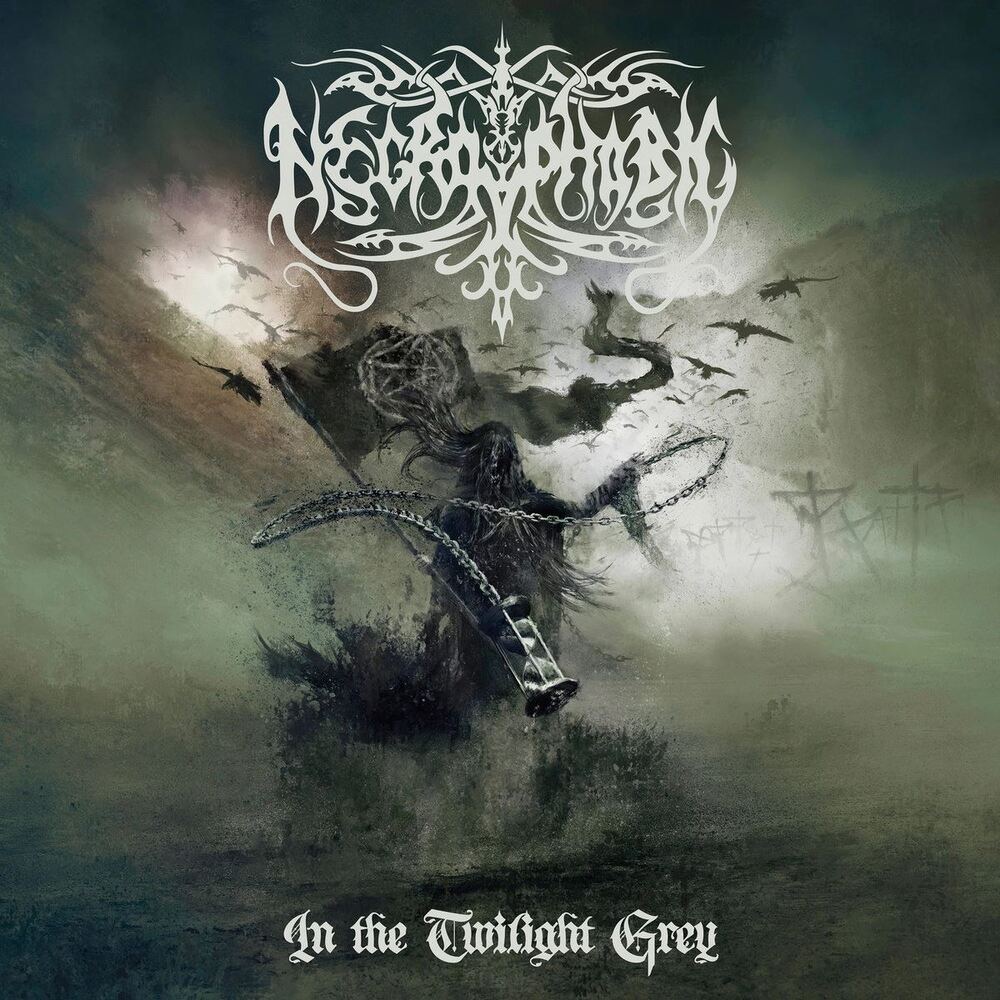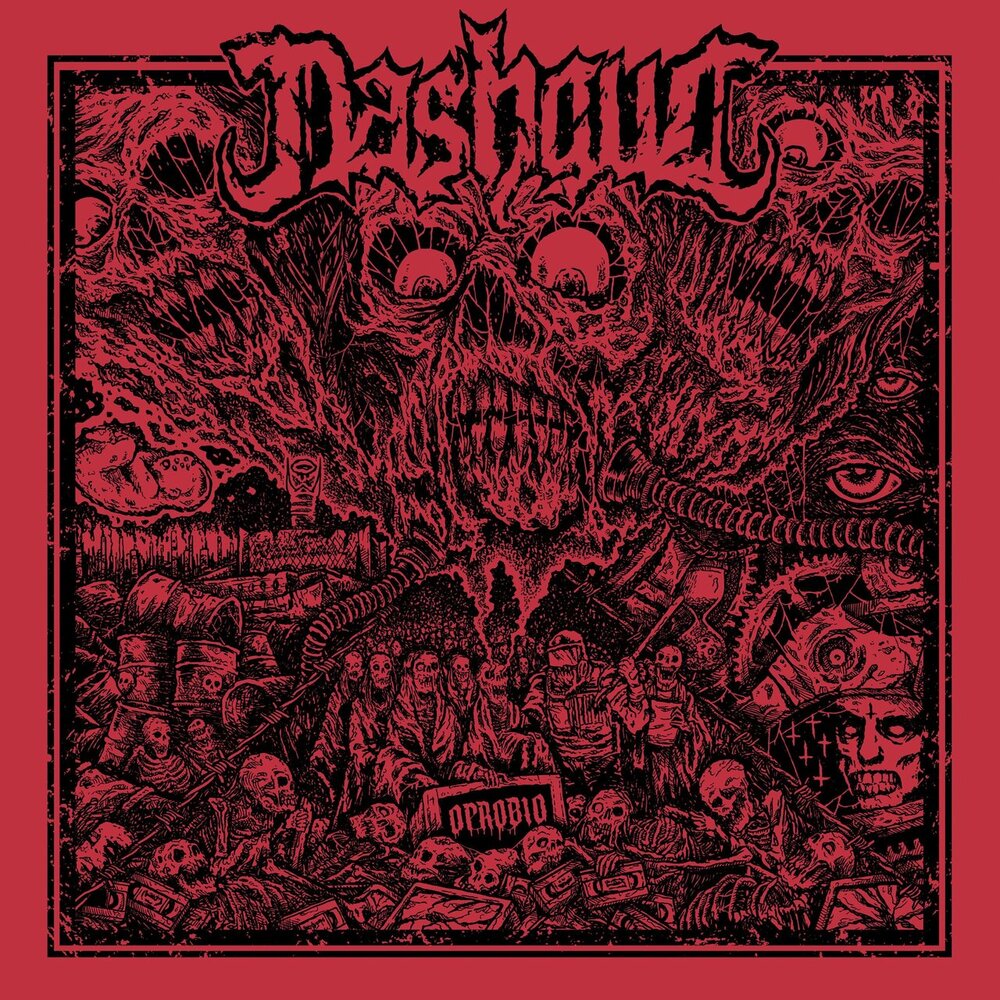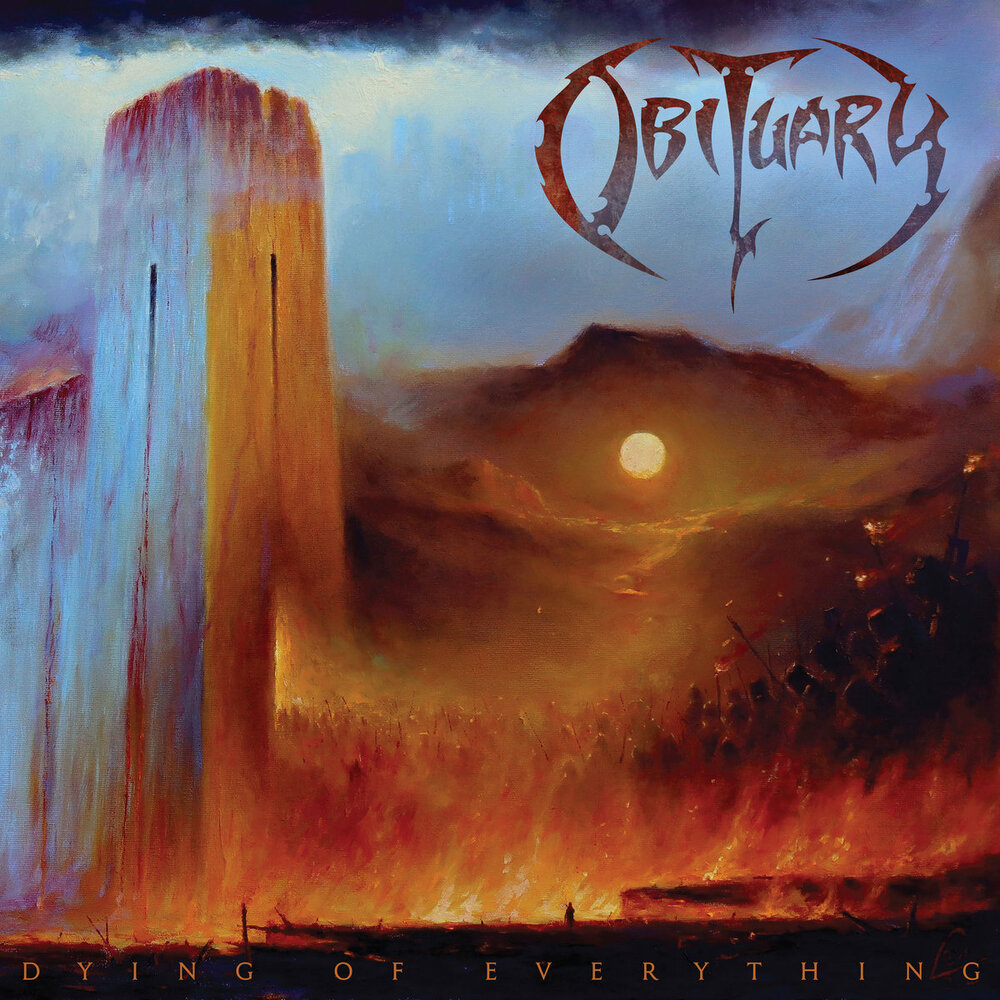 |
Country: India
Style: Folk/Death Metal
Rating: 8/10
Release Date: 7 Sep 2024
Sites: Bandcamp | Facebook | Instagram | Metal Archives | YouTube
I like the idea of the website Metal Has No Borders, because that's one of my guiding principles at Apocalypse Later too, so I paid attention to their Best Folk Metal Album of the Year list. It included a trio of albums, Ryujin's self-titled in the bronze tier, Vorgrum's Summit of Dreams in silver and a third EP from Flint Knife Murder in the gold. That's an album from Japan, another from Argentina and an EP from Shillong in the Meghalaya province of India, so far to the northeast that it's past a majority of Bangladesh but not quite so far as About Us, in Wokha, Nagaland.
I don't know that I'd call this my folk metal release of the year because there are highly apparent limitations, but it's a fascinating EP and I'd love to hear more. For a start, it's both folk metal and death metal at the same time, so much so that I can't decide which way it went. It doesn't seem to be folk metal that's been crunched up into death and it doesn't seem to be death metal that's had a huge amount of folk elements overlaid. It feels like it's inherently both genres and both of them are integral to the sound. My favourite part comes at the very end of the opener, Nartiang, with a death metal crunch and a delightfully sticky beat, but a telling folk wail overlaid.
The beginning of Likai that follows comes close, sounding like a field recording of a folk melody in the jungle opening it up, then shifting into the guitars of death metal but the percussion of folk music. I have no idea what's being hit or what it's being hit with but it sounds glorious, with those riffs underneath it. There's a glorious combination of chant and heavy metal riff in Dharmapala, not for the first time. Angulimala opens with a wonderful riff and that folk percussion joins more traditional metal drums for a fascinating sound, that's like hand drums as a full kit. There's some sort of melodious lute halfway that I can't identify but which sounds glorious. The solo is excellent too, again somewhere between folk and heavy metal.
My problem with it is that the death metal angle, when it's isolated from the folk elements which happens occasionally, feels relatively routine. The riffs are good but they don't vary much and I'm not a big fan of the harsh vocals, whether they're death growl or hardcore shout or somewhere in between, because they fall into the common trap of working as texture but without intonation or much nuance. Fortunately, there are a lot of different styles of vocals here and such sections are never particularly long. There are folk chants, dark whispers, clean rock vocals, shouty vocals and harsh growls, each of which adds an element, as does the narrative element on Dharmapala.
I'm only seeing two names associated with Flint Knife Murder, though there may well be more at this point in their career. They formed in 2014, Siddharth Burea on vocals and guitar and Saptarshi Das on vocals and bass, but those are not the only instruments in play here, even if some of it was created digitally on synths. There are no credits for this EP at Metal Archives and it's not on their Bandcamp page. Angulimala is, presumably in an earlier version, but with nobody else listed. An earlier version of Likai is also on their Bandcamp with a guest vocal credited to Tiara Kharpuri.
I've listened to this rather a lot as I've chipped away at my book reviews for the month and I have to say that it's growing on me. It doesn't seem to work well as background but it rewards an active listener, because there are depths here that float past unnoticed if we're not paying attention. A couple of songs, Likai and Dharmapala I believe, feature some tasty bass runs that deserve kudos, but a lot of the nuance is in the songwriting. Dharmapala in particular has both a ritual element to it and a storytelling element.
Maybe that's why it's my favourite song here. It's slower and less overtly death but it does a huge amount with its seven and a half minutes. For something that fits so well as folk/death, there's a strong prog aspect to this one. I adore when the eighties heavy metal solo kicks in and it matches the deep ritual chanting perfectly. I have no idea what's going on but there's a movie's worth of something in this piece. The more I listen with serious focus, the more I find that each piece here has that to at least some degree.
I wonder when they'll get round to issuing a full album. They've put out EPs in 2020, 2021 and now 2024, so they're not without material. I guess it's just a matter of time. I'm looking forward to it.


















